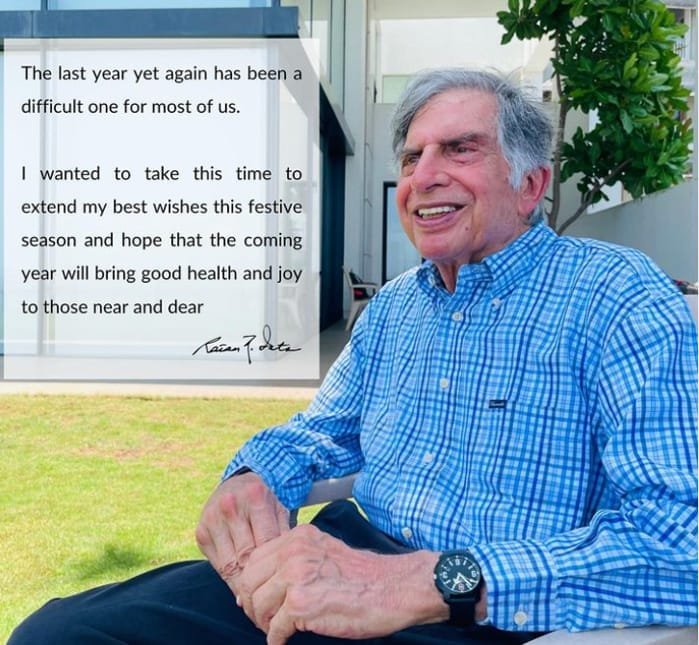– A tribute by Zakir Hussain –
Ratan Tata, one of the most revered figures in India’s business landscape, passed away at the age of 86. A titan of industry, he left an indelible mark on the nation’s economy, and his death marks the end of an era. His extraordinary contributions not only elevated the Tata Group to unparalleled heights but also positively impacted millions of lives through his philanthropy and vision for a better India. The country now mourns the loss of a leader whose foresight, integrity, and compassion transformed entire industries and built the foundation for future generations.
Early Life and Family Background
Ratan Tata was born on December 28, 1937, into the illustrious Tata family, known for its contribution to India’s industrial growth. As the adopted grandson of Jamshedji Tata, the founder of Tata Group, Ratan Tata grew up in an environment where industry, ethics, and innovation were deeply valued. His father, Naval Tata, was a prominent figure within the group, ensuring that Ratan was exposed to the complexities of business from an early age. However, despite his illustrious lineage, Ratan’s success was not inherited but rather earned through decades of hard work, a relentless pursuit of excellence, and a deep sense of responsibility towards society.

Ratan Tata’s Visionary Leadership at Tata Group
Ratan Tata became the Chairman of Tata Sons in 1991, a period marked by the economic liberalization of India. His leadership was transformational, guiding the Tata Group through one of the most significant transitions in modern Indian economic history. Under his stewardship, Tata expanded into new markets and industries, including information technology, steel, automobiles, and telecommunications.
One of his most notable achievements was the global expansion of Tata Group, culminating in high-profile acquisitions such as Tata Steel’s purchase of Corus and Tata Motors’ acquisition of Jaguar Land Rover. These bold moves helped Tata Group solidify its place on the global stage, turning the conglomerate into a multinational powerhouse. His focus was not merely on profits but on ensuring that Tata Group maintained its ethical standards and commitment to improving society—a hallmark of the Tata legacy.
Author Zakir Hussain
Editor
International News and Views Corporation
Contact – : zakir@invc.info +91- 9999347201
A Commitment to Innovation and Integrity
What set Ratan Tata apart from many of his contemporaries was his unwavering commitment to innovation and integrity. Throughout his career, he placed a premium on ethics and ensured that Tata Group never compromised its values for short-term gains. This commitment to doing business ethically, even at the cost of profit, earned him the trust and admiration of millions.
His innovations included the launch of the Tata Nano, the world’s cheapest car, which was designed with the goal of providing affordable transportation to the masses. Although the Nano didn’t become a commercial success, it exemplified Tata’s desire to address societal challenges through business solutions. Ratan Tata’s legacy as a visionary leader lies not just in building billion-dollar companies but also in creating products and services that empower the common man.
Ratan Tata’s Philanthropic Impact
Ratan Tata’s contributions extended far beyond the corporate world. A firm believer in giving back to society, he led Tata Group’s efforts in philanthropy, focusing on education, healthcare, rural development, and environmental conservation. Under his guidance, Tata Trusts, one of the oldest philanthropic organizations in India, significantly expanded its initiatives, impacting millions of lives.
Education was a particular area of interest for Tata. He made significant contributions to institutions such as Cornell University and the Harvard Business School. In India, Tata Trusts played a pivotal role in improving access to education in rural areas, funding scholarships, building schools, and enhancing educational infrastructure. His dedication to uplifting the underprivileged was recognized globally, and he became synonymous with corporate social responsibility.
A National Treasure: Awards and Recognition
Ratan Tata’s lifetime achievements have been recognized both in India and globally. In 2000, the Government of India honored him with the Padma Bhushan, the nation’s third-highest civilian award, for his contributions to trade and industry. Eight years later, in 2008, he received the Padma Vibhushan, India’s second-highest civilian honor, for his continued service to the nation.
Beyond these accolades, Ratan Tata’s influence extended internationally. He was appointed as an honorary Knight Commander of the Order of the British Empire in 2009, acknowledging his contributions to strengthening India-UK business relations. His global stature grew as he sat on the boards of some of the world’s most prestigious institutions and received numerous awards for his business acumen and philanthropic efforts.
The Final Days and Nation’s Tribute
In his final days, Ratan Tata’s health began to decline, and he was admitted to a hospital in Mumbai due to complications related to age-related illnesses. The news of his death on [insert date] sent ripples across the nation, with an outpouring of grief from business leaders, political figures, and citizens alike. Prime Minister Narendra Modi expressed his deep sorrow at Tata’s passing, calling him a visionary leader whose contributions to the nation would forever be remembered. He praised Tata for his role in shaping modern India and for his compassion towards those in need.
Tata Sons Chairman, N. Chandrasekaran, released a heartfelt statement, saying, “We are deeply saddened by the loss of Ratan Naval Tata, a truly extraordinary individual. For the Tata Group, he was more than just a Chairman. He was a mentor, a guide, and a friend.” Chandrasekaran highlighted the deep impact Tata’s philanthropic initiatives would continue to have on future generations, particularly in education and healthcare, areas where Tata’s influence remains profound.
The Enduring Legacy of Ratan Tata
While Ratan Tata may no longer be with us, his legacy will endure for generations. His contribution to India’s industrial development, his dedication to ethical business practices, and his philanthropic endeavors have left a lasting impact on the country and the world. The Tata Group remains a testament to his visionary leadership, and his influence continues to inspire millions.
Tata’s commitment to social responsibility, his pioneering spirit, and his humility will forever be a guiding light for both the Tata Group and the Indian industry as a whole. His passing marks the end of an era, but his ideals and vision will continue to shape India’s future.
Ratan Tata was not just a businessman; he was a nation-builder, a humanitarian, and a role model for generations to come. His life was a testament to the power of integrity, vision, and a deep commitment to societal good.
















